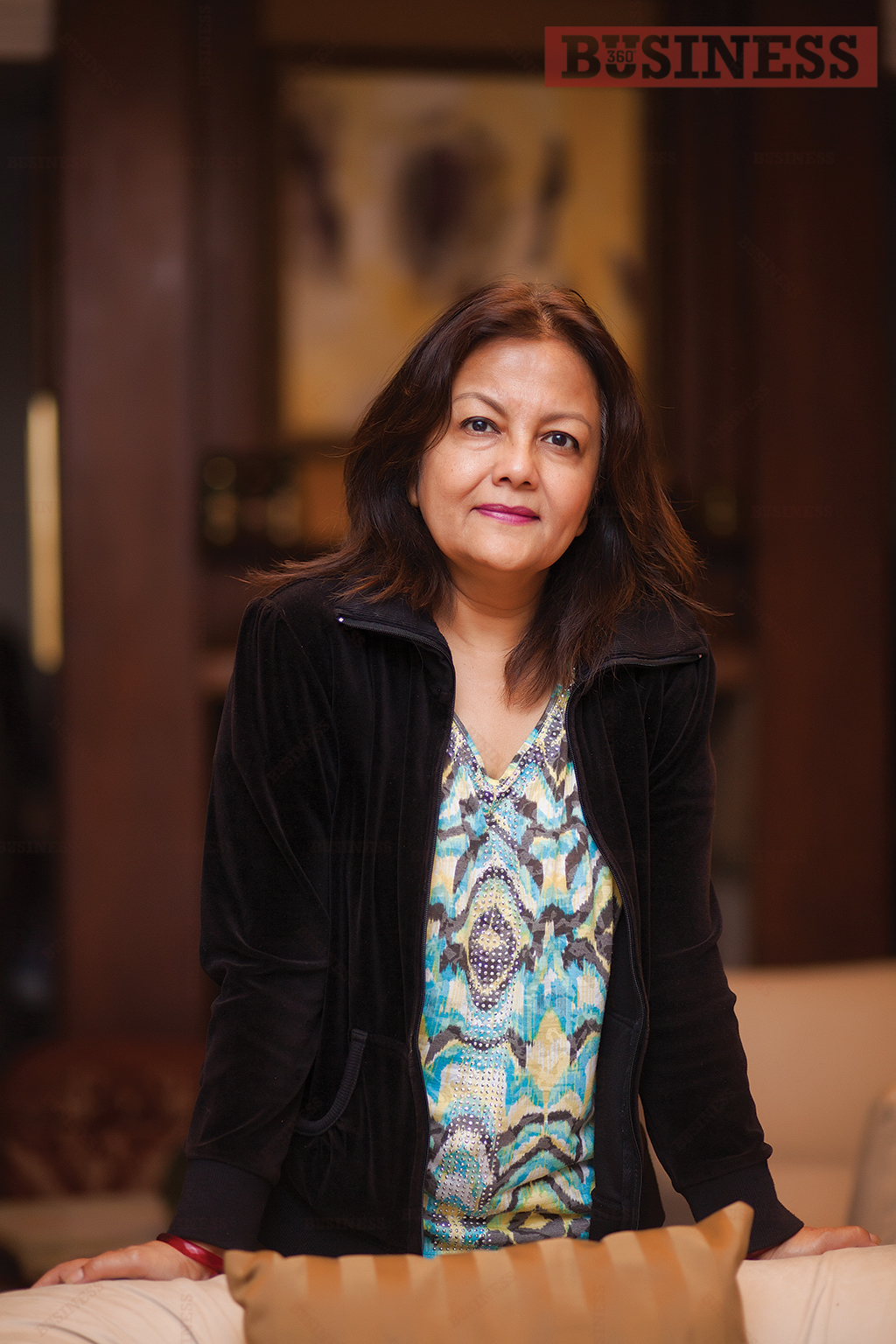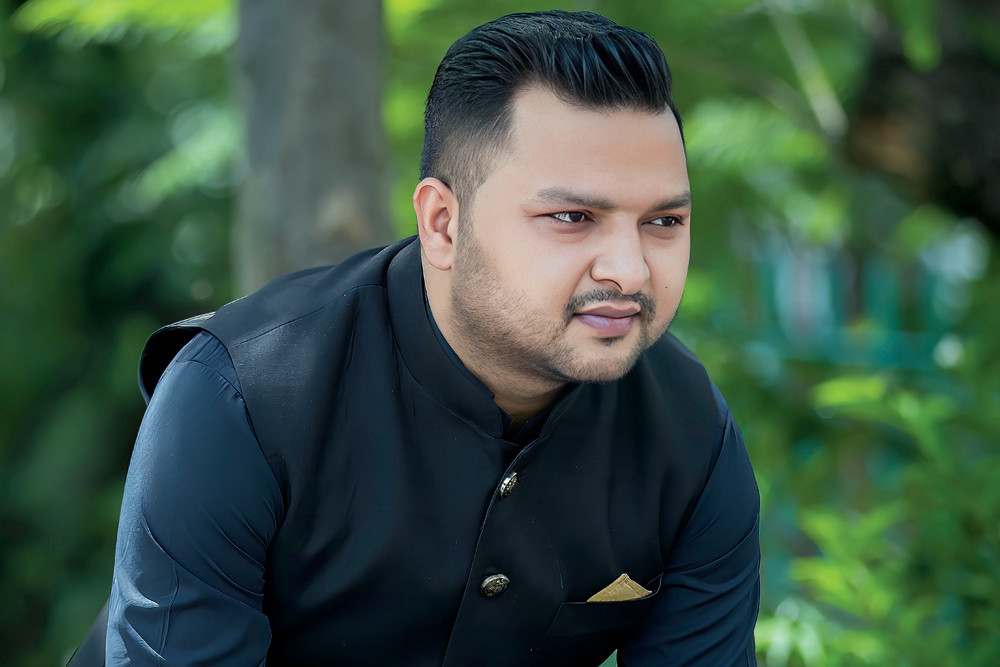
It has been a year since Bijay Rimal joined Nepal Mediciti Hospital as its General Manager overseeing administration, planning and execution. He is today considered among the foremost hospital administrators sought out for his keen perception, insight and management expertise.
In this edition of Business 360, Rimal shares the five things that have impacted his work and life.
Result-oriented service
There is the reason why I chose to work in the health sector. Two decades ago, when my father’s health condition had deteriorated and he was put under observation of a nursing team, their service towards my dad inspired me to the core. Though he passed away, I believe this incident injected an interest in health management and administration for me.
In my career of 22 years, there have been innumerable debates about how one can bridge the gap between leadership and management approaches befitting a healthcare setting. When one examines healthcare practices and management in Nepal, Mediciti comes to mind first because of its diligently implemented multidisciplinary approach.
[su_pullquote align="right"]In my experience, a person lives three lives: professional, family and personal. Out of these three, one life usually dominates the others and in my case my professional life rules. [/su_pullquote]Cases like the Mailung helicopter crash where the hospital performed a life saving medevac for the only survivor, proves the potential of Mediciti. The patient received pre-hospital care and was brought to one of the hospital’s helipads where two doctors were on standby with lifesaving equipment. Though it was Saturday, hence my holiday, I gave up everything and tried my best to bring the patient here for the treatment.
Farsightedness
Farsightedness is the key ingredient of success which has to be cultivated in the Nepali working culture. The ability to see ahead and sustain on the right path has helped me get to the position of General Manager today—something I had planned five years back. Well, farsightedness is a skill which comes with experience. It is the intuition of the individual, the ability to learn from past mistakes and move accordingly.
Meanwhile, I have also planned my next move which would be to become a University Registrar. I have been weaving my background which comprises a work history in a 700-bed public hospital, a 750-bed corporate hospital, a 100-bed charity hospital and more.
 Balance between professional and personal life
Balance between professional and personal life
Adhering to the fact that it’s not a 10 to 5 job, we may often have to make compromises in our personal lives. For instance, it has been months I haven’t taken my wife for shopping, more than six months that my family vacation to Nagarkot is pending and the list is endless. However, the fact that our actions bring a significant difference in the lives of hundreds and thousands of people brings us happiness and self satisfaction. My wife is a nurse and understands my professional demands.
When you save people’s lives and see them making a difference to humanity, you realise the magnitude of your job responsibility. This is a satisfying feeling. Things do get tough when you juggle between fulfilling your professional commitment to be available 24x7 and family time and somewhere in-between assigning time for yourself. In the health sector, one definitely needs seemingly unlimited stamina to consistently deliver the best. But all that is worth the effort when you experience the gratification when interacting with the family of a healing patient. That very moment seals a bond between you and the patient’s family and they become a part of your own family. Want to discover more information about slots on mobile? Go to this site to see the most profitable mobile slots for Canadian players. Knowledgeable casino specialists have talked about developers, payouts, and supplementary features.
In my experience, a person lives three lives: professional, family and personal. Out of these three, one life usually dominates the others and in my case my professional life rules.
Lifetime impacts
Twenty years back, when I was part of BP Koirala Institute of Health Sciences, a terrifying incident occurred. The mother of a nurse, who worked in the hospital, had passed away and her body was lying in the mortuary for three days. As the family hailed from an extremely remote area, the nurse couldn’t afford to transport the body for proper cremation. Eventually, she approached me and shared her situation. I immediately arranged everything with the help of my team and made the cremation possible taking care of all the rituals. This incident changed my perspective and made me realise that one should never leave any stone unturned to dedicate their life to humanity. After this, no such incident occurred at that institution.
The other incident deals with an unattended patient who was dropped off at the emergency section of the hospital on a cold winter night. Unfortunately, none of the hospital staff paid attention. A journalist raised questions about the ethics of the hospital, claiming it as a place where patients are left abandoned. I approached the journalist and asked him about his ethics – was it not also his duty as a human being to admit the patient or to at least bring him inside the hospital. Rather than blaming each other, we should do our part. You never know, a small help can change someone’s life.
Working for the country
I am working for a cause. I am working towards a better Nepal. A country which will be self-sustained in terms of healthcare. Instead of people flying abroad for better health treatment, we are working to provide people with all those facilities in Nepal itself.
We have money, infrastructure, manpower and are even capable of buying technology as required; the only thing Nepal lacks is proper management in health service.
Without appropriate research, hospitals pop up in Nepal. These practices can be monitored only through proper health sector management. There is an immediate need to look at the reasons for widening inequality and unequal distribution of knowledge. The problem is that we have people who have studied health management but lack the experience.
Talking about Nepal Mediciti Hospital, we had spent five years on research before building the hospital, we have a mapping of every Nepali doctor working with us and also those who are capable of working with us in the future. In fact, we are in the planning stage of opening four hospitals in the valley; thereby, developing the concept of chain hospitals in Nepal. Planning of such level is required to channel resources for the best outcomes in our country.
Whether it’s today, tomorrow or decades down the line, you will always find me in Nepal. The workstation may be different but the country and the sector will be the same. Today, I am in a position that my inputs for health policies are considered and I am doing my best to transform of Nepal’s healthcare sector.



.jpg)

.jpg)